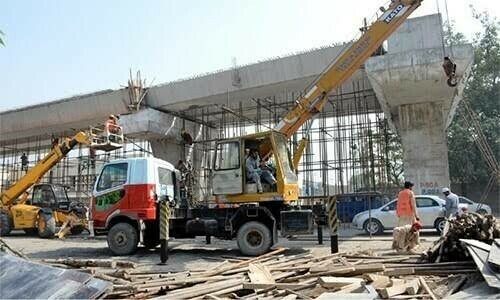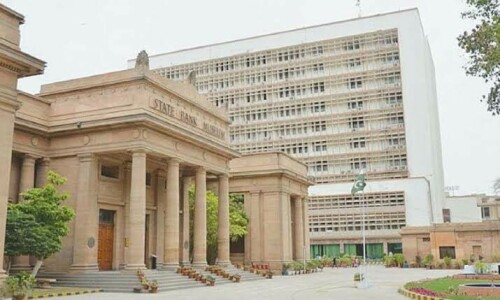THE World Bank’s Pakistan Federal Public Expenditure Review puts the focus back on our persistently widening fiscal deficits over the last one decade. This has been one of the main reasons behind the nation’s rapidly burgeoning public debt and growing trade gap. The review is the first since the implementation of the 18th Constitutional Amendment and the seventh NFC Award, which the bank says, represented a major shift in the country’s fiscal architecture since 2010. The report highlights the point that the country’s fiscal deficit averaging 6.2pc of GDP during the last one decade has been large and is growing, posing risks to fiscal and debt sustainability. Likewise, the World Bank emphasises that the large recurrent budget shortfalls have led to a rapid accumulation of public debt, which reached 78pc of GDP in the last fiscal, slightly lower than the record high of 81.1pc in 2020. Both the deficit and debt levels have been in breach of the Fiscal Responsibility and Debt Limitation Act, 2005 and the upper limits of 3.5pc and 60pc of GDP for the budget deficit and public debt respectively.
The short, repeated boom-and-bust cycles of the last few years show how adversely persistent large deficits can affect the economy, slow down growth, cause current account crises and foreign currency crunches, increase public debt and crowd out private businesses from debt markets. Thus, it is crucial to reduce the fiscal deficit to regain fiscal and debt sustainability. The review proposes several measures for fiscal consolidation including the rollback of energy and other subsidies to the wealthy, curbing spending on devolved subjects and financing provincial development projects, disinvestment of lossmaking state businesses, and mobilising domestic revenue by broadening the tax net. The measures proposed by the report can result in fiscal savings equal to 4pc of GDP besides freeing up fiscal space for the private sector to play its role in economic growth. Apart from reducing fiscal vulnerabilities, the reduction in the fiscal deficit and public debt within the limits set by the FRDLA will improve the economic climate and provide a more conducive environment for investment and sustained growth. What ails the economy and what will cure it has long been known to our politicians and policymakers. So one wonders how this new report is going to make them implement the reforms they have avoided for decades.
Published in Dawn, April 17th, 2023











































Dear visitor, the comments section is undergoing an overhaul and will return soon.